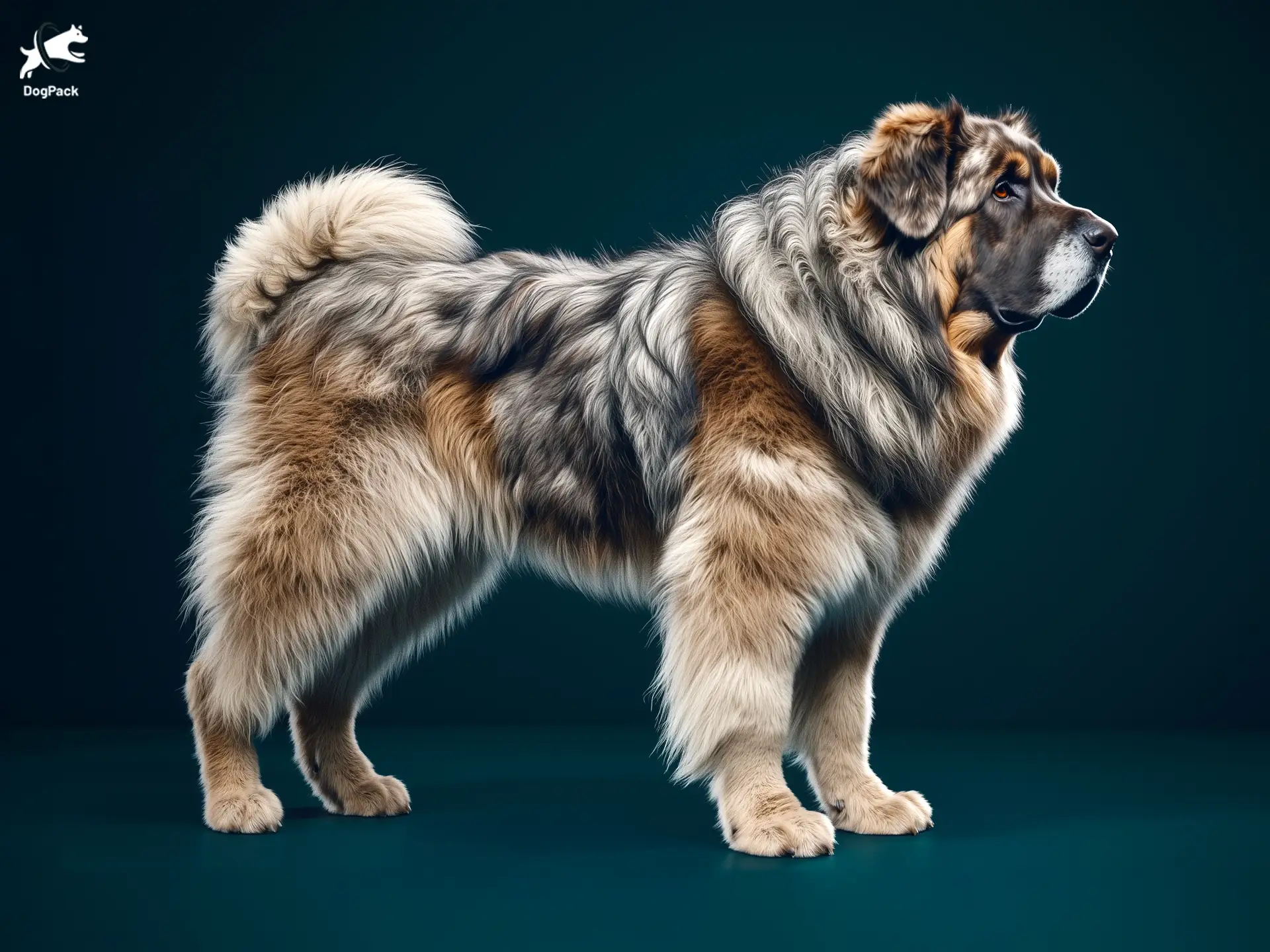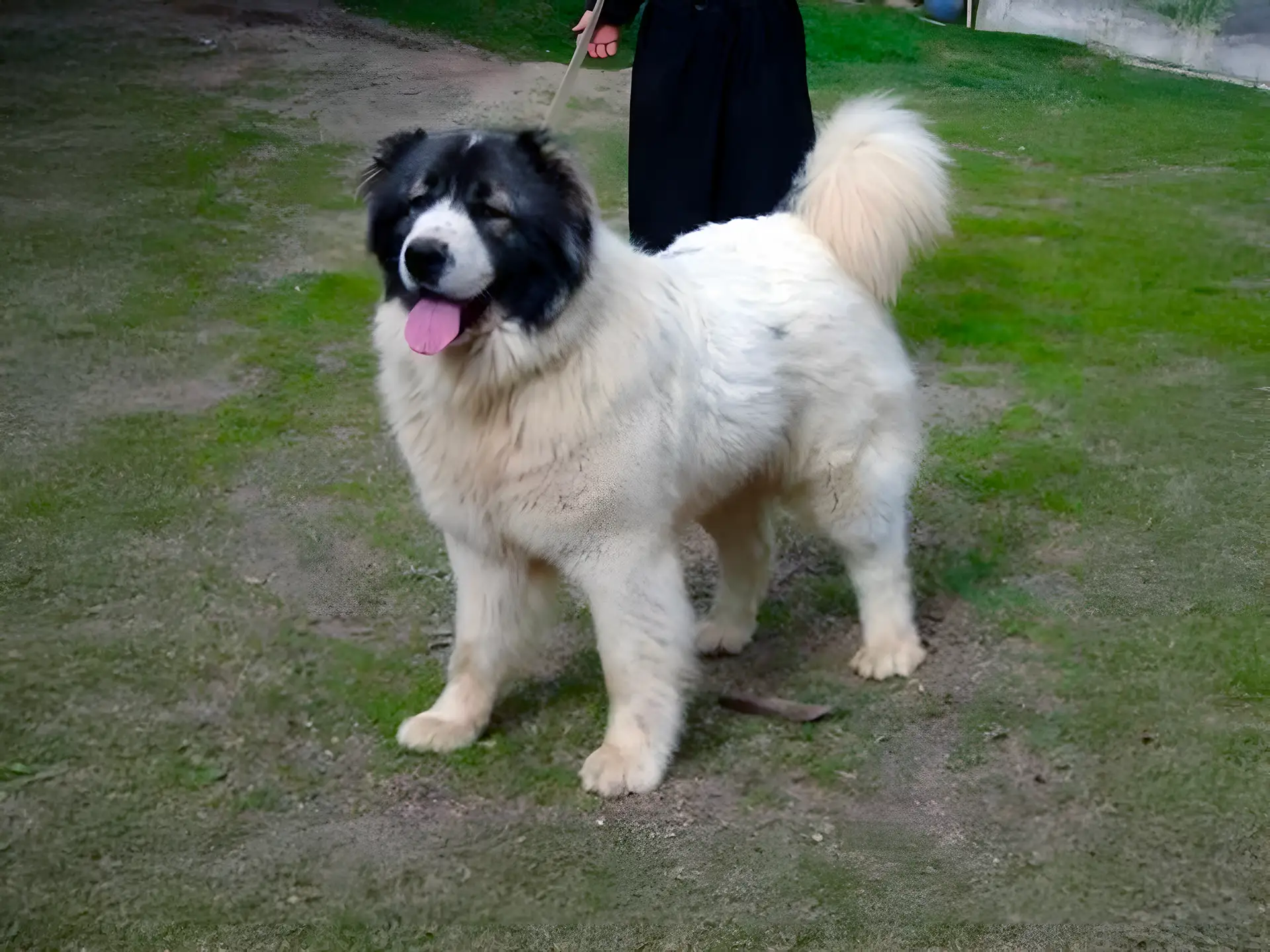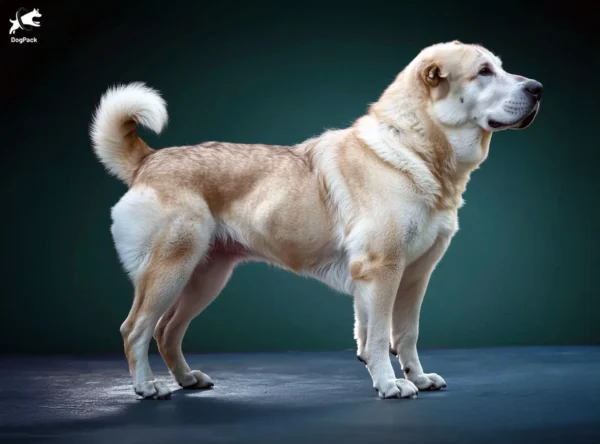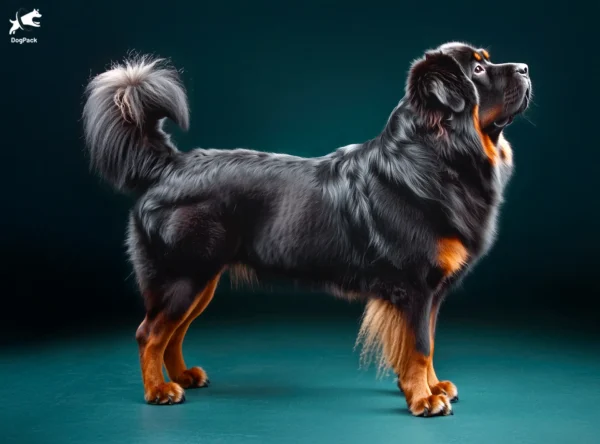Georgian Shepherd Mountain Dog Breed Info & Overview
The Georgian Shepherd, a majestic giant from the rugged Caucasus Mountains, embodies strength and loyalty like no other. Known for its protective instincts and unwavering devotion, this breed has been a steadfast guardian for centuries. With its rich history and noble demeanor, the Georgian Shepherd isn’t just a pet—it’s a devoted companion and a living symbol of tradition and resilience.
Characteristics
Pictures
Breed History
Originating from the rugged terrains of the Caucasus Mountains, the Georgian Shepherd has a history as formidable as its presence. For centuries, this breed has been the guardian of flocks and properties, fending off predators like wolves and bears. Their lineage dates back over 2,000 years, making them one of the oldest surviving Molosser breeds.
The isolation of the Caucasus region allowed the breed to develop unique traits suited for harsh climates and tough terrains. Shepherds bred them not just for their protective instincts but also for endurance and resilience. Each village often had its own distinct line, tailored to the specific needs of the community.
During the Soviet era, the Georgian Shepherd gained recognition beyond Georgia as it was utilized for military and prison guard duties. Their reputation as unwavering protectors spread, leading to increased interest in preserving their pure lineage. Today, efforts continue to maintain the breed’s historical characteristics while adapting to modern roles.
Temperament, Personality
Known for their unwavering loyalty, Georgian Shepherds form strong bonds with their families. They are naturally protective and will go to great lengths to safeguard their loved ones. This breed possesses a calm demeanor when at ease but can be assertive and courageous when they sense a threat.
While they can be gentle with children within their family, Georgian Shepherds require proper socialization to ensure harmonious interactions. Their size and strength mean they should always be supervised around small kids. They may not be the most playful companions, but their nurturing instincts shine in family settings.
With strangers and other animals, they can be wary and territorial. Early socialization is crucial to mitigate overly protective behaviors. They are not typically aggressive without cause, but their guarding instincts make them naturally suspicious of unfamiliar people or pets entering their domain.
Physical Characteristics
The Georgian Shepherd is a massive and muscular dog, exuding power and confidence. Their thick double coat varies from medium to long length, providing insulation against harsh weather. Coat colors range widely, including shades of gray, fawn, tan, and even brindle patterns.
Their broad head, deep-set eyes, and strong jaws contribute to their formidable appearance. Ears are often cropped in their native regions, although natural, drooping ears are becoming more accepted elsewhere. The tail is typically bushy and carried low when relaxed.
One of the most striking features is their imposing size. Males can weigh up to 220 pounds and stand over 30 inches tall at the shoulder. Despite their bulk, they possess surprising agility and endurance, traits honed by centuries of working in mountainous terrains.
Health Issues
Like many large breeds, Georgian Shepherds can be prone to certain health issues. Hip dysplasia is a common concern due to their size and weight, leading to mobility problems as they age. Regular veterinary check-ups and maintaining a healthy weight can help manage this condition.
Heart conditions, such as dilated cardiomyopathy, have also been observed. Monitoring for symptoms like lethargy or difficulty breathing is important for early detection. Eye problems, including cataracts and entropion, may occur and should be addressed promptly.
Given their thick coat, they can be susceptible to skin issues if not properly groomed. Regular brushing helps prevent matting and skin irritations. Overall, responsible breeding practices and attentive care can mitigate many of these health concerns.
Grooming Needs
The Georgian Shepherd’s dense double coat requires consistent grooming to keep it in top condition. A thorough brushing at least twice a week helps remove loose hair and prevent tangles. During shedding seasons, daily brushing is recommended to manage increased hair loss.
Bathing should be done as needed, typically every few months, unless they get particularly dirty. Overbathing can strip the coat of natural oils, leading to dry skin. Using a high-quality dog shampoo maintains the health of their skin and coat.
Don’t forget other aspects of grooming, such as nail trimming, ear cleaning, and dental care. Their ears should be checked regularly for signs of infection, especially if they have natural, floppy ears. Regular grooming sessions also provide an opportunity to check for skin issues or parasites.
Exercise Requirements
Despite their size, Georgian Shepherds have moderate exercise needs. Daily walks and access to a securely fenced yard provide sufficient physical activity for most individuals. They enjoy stretching their legs but are not as hyperactive as some other working breeds.
Mental stimulation is equally important for this intelligent breed. Engaging them in tasks or providing puzzle toys keeps their minds sharp. They may also enjoy activities that mimic their traditional roles, such as guarding or watching over property.
Due to their protective nature, off-leash exercise should be approached with caution in uncontrolled environments. They should always be supervised, especially around unfamiliar people or animals, to prevent unintended protective behaviors.
Training Tips
Training a Georgian Shepherd requires patience, consistency, and a firm but fair approach. They are intelligent but can be independent and strong-willed, stemming from their history of working autonomously. Early obedience training establishes necessary boundaries and expectations.
Positive reinforcement techniques work best, as harsh methods can lead to resistance or aggression. Building a strong bond based on mutual respect encourages them to respond more readily to commands. Socialization from a young age is crucial to help them differentiate between normal and threatening situations.
Enrolling in professional training classes can be beneficial, especially for first-time owners of this breed. An experienced trainer familiar with large, guardian breeds can provide valuable insights. Remember, the goal is to channel their natural instincts in a controlled manner.
Nutrition, Diet
Feeding a Georgian Shepherd requires attention to quality and quantity to support their large size and energy needs. A diet rich in high-quality proteins and fats is essential for muscle development and overall health. Opt for premium commercial dog food formulated for large or giant breeds.
Portion control is vital to prevent obesity, which can exacerbate joint problems like hip dysplasia. Dividing their food into two or three smaller meals per day aids digestion and prevents bloat, a serious condition that large, deep-chested breeds are susceptible to.
Consulting with a veterinarian or a canine nutritionist helps tailor a diet specific to your Georgian Shepherd’s age, weight, and activity level. Supplements like glucosamine and chondroitin may support joint health but should only be added under professional guidance.
Adoption, Breeders
Finding a Georgian Shepherd requires diligent research to locate reputable breeders or adoption organizations. Look for breeders who prioritize health screenings and can provide documentation of genetic testing for common breed-specific issues.
Visiting the breeder’s facility offers insights into how the puppies are raised and socialized. Reputable breeders will be transparent, answer your questions, and may even ask questions to ensure their puppies go to suitable homes.
Adoption is another avenue worth exploring. Organizations like the Caucasian Shepherd Dog Club of America often have resources or rescue contacts. Adopting an older dog can be rewarding and provides a home to a dog in need.
Family Pet?
The Georgian Shepherd can be a devoted family pet for the right household. Their loyalty extends to all family members, and they often form deep bonds with those they consider part of their pack. However, their size and protective instincts require careful management.
Families with older children who understand how to interact respectfully with large dogs may find them a suitable companion. They are not typically recommended for households with very young children due to the risk of accidental knocks or natural guarding behavior.
Introducing them to other pets should be done cautiously and under controlled conditions. While they may accept animals they’ve been raised with, their territorial nature can lead to conflicts with unfamiliar pets. Early socialization is key to promoting harmonious relationships.
Right For You?
Deciding if the Georgian Shepherd is right for you involves an honest assessment of your lifestyle and capabilities. They thrive in environments where they have space to roam and a job to do, making them ideal for rural settings or homes with large, securely fenced yards.
Experience with large, guardian breeds is highly beneficial. Owners must be prepared to invest time in training, socialization, and ongoing management to ensure the dog is a well-adjusted community member. Their independent nature means they are not the best choice for first-time dog owners.
If you seek a loyal companion who offers unmatched protection and are willing to meet their specific needs, the Georgian Shepherd could be a fulfilling addition to your life. Their majestic presence and deep devotion make them a breed like no other.
Conclusion
Bringing a Georgian Shepherd into your home is a significant commitment that comes with substantial rewards. This breed offers unwavering loyalty, protection, and a deep bond that few others can match. If you have the space, experience, and dedication to meet their needs, the Georgian Shepherd can be a remarkable companion who will stand by your side through thick and thin.
FAQs
-
How does the Georgian Shepherd compare to the Caucasian Shepherd?
The Georgian Shepherd is often confused with the Caucasian Shepherd but is generally leaner and more agile. Both breeds are excellent guardians, but the Georgian Shepherd has slightly more stamina and is adapted for mountainous terrain.
-
Can the Georgian Shepherd handle extreme weather conditions?
Yes, the Georgian Shepherd’s thick double coat allows it to withstand extreme cold and wet conditions. They were bred for harsh climates, making them well-suited to outdoor environments, but they still require adequate shelter during severe weather.
-
What makes the Georgian Shepherd an effective livestock guardian?
The Georgian Shepherd has a natural protective instinct, combined with intelligence and courage. They are highly territorial and bonded to their flock, making them vigilant against predators like wolves or bears, especially in rural or mountainous settings.
-
Do Georgian Shepherds require specific training methods?
Yes, Georgian Shepherds benefit from firm but positive training methods. Their independent nature means they may resist harsh techniques, so early socialization, consistency, and patience are key to fostering good behavior.
-
What kind of diet does a Georgian Shepherd need?
As a large, active breed, the Georgian Shepherd requires a high-quality diet rich in protein and nutrients. Feeding them large-breed-specific dog food can help support their joints and overall health. Always consult with a veterinarian for portion control and dietary needs.
Breed Ratings
The Georgian Shepherd is intelligent but can be independent, requiring a patient and consistent approach to training.
While affectionate, they are not overly playful and prefer guarding duties over games or tricks.
They have moderate energy levels, enjoying daily walks but not requiring excessive exercise to stay content.
This breed sheds heavily, especially during seasonal changes, requiring regular grooming to manage.
With a history of guarding livestock, they may have a moderate prey drive toward unfamiliar animals.
Their thick coat requires significant upkeep, making grooming a time-consuming but necessary task.
Consistent and patient training is needed due to their strong-willed nature and natural guarding instincts.
They can tolerate being alone for periods, as they are independent but still require companionship.
They may bark to alert owners of perceived threats but are generally not excessive barkers without cause.
The Georgian Shepherd has a low to moderate tendency to drool, more so in hot weather or after exercise.
They can be wary of other dogs, especially of the same sex, and require socialization to improve interactions.
They are generally healthy but can be prone to genetic health issues common in large breeds like hip dysplasia.














